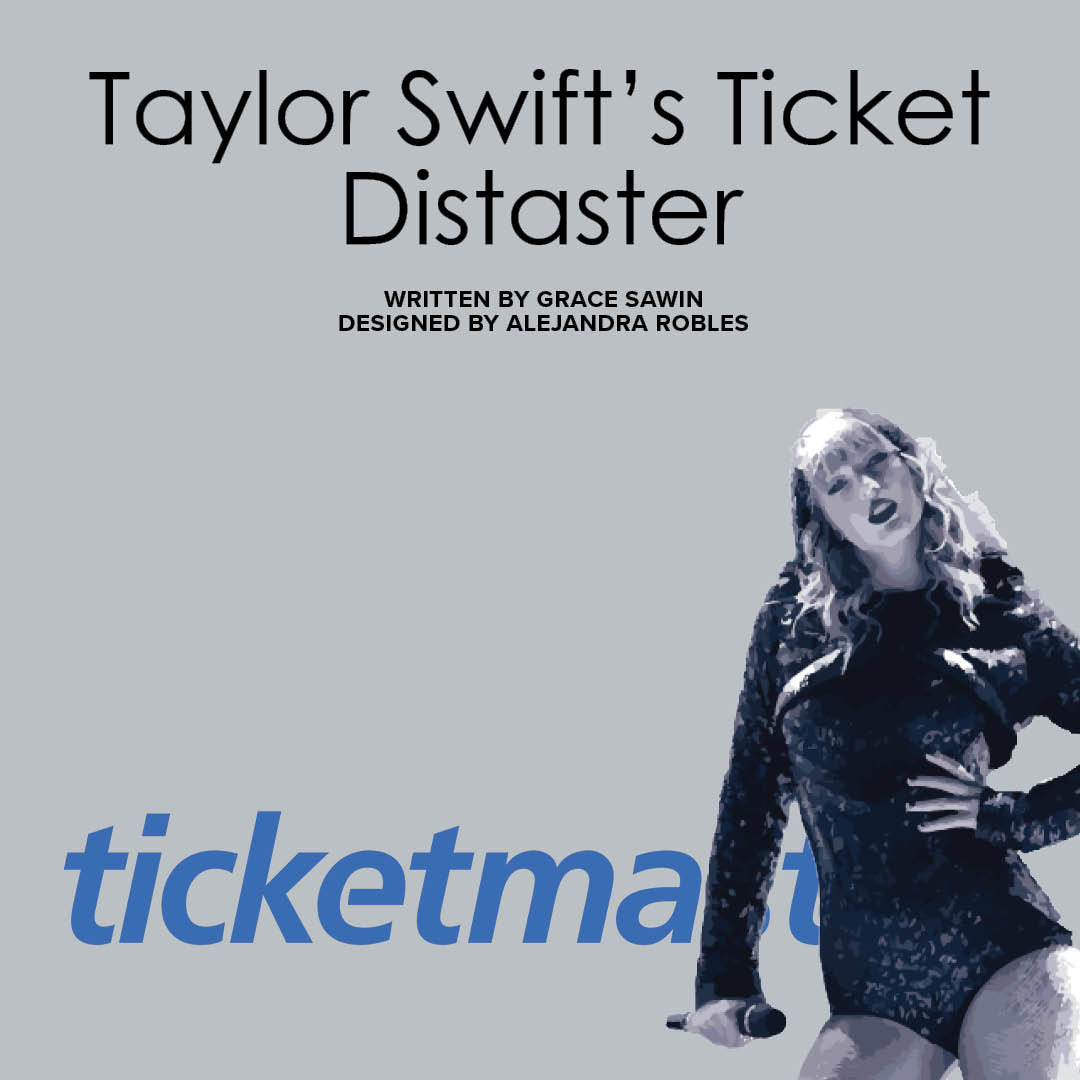
Following the release of her tenth studio album, “Midnights,” Taylor Swift announced her first tour since the pandemic, much to the excitement of fans. However, after Ticketmaster wasn’t able to sustain the ticket demand, the Eras Tour is now at the forefront of the news, finding its way into the hands of the justice system.
Swift announced the Eras Tour on Nov. 1 2022, during her appearance on Good Morning America. Unlike her past tours, this would encompass her most recent release, “Midnights,” as well as the three albums she’d released during the pandemic: “Evermore,” “Folklore” and “Red (Taylor’s Version).”
Fans were able to sign up to be considered for a verified presale, intended to prevent bots and ticket scalpers. Although high demand was expected – after all, Swift has almost 79 million Spotify monthly listeners and an unfailingly loyal fan base – the unprecedented bot traffic and the sheer number of users slowed the site down. Some waited up to eight hours to secure their tickets and others were left empty-handed even after paying.
Tickets were advertised as $49-$449 and VIP packages were $199-$899, but prices were significantly higher than promised, most likely due to dynamic pricing, which raises the price of tickets as demand increases to restrict resellers. The feature has to be turned on by the artist, and fans have expressed contempt towards Swift for this decision. Overall, the site’s shortcomings have reintroduced the conversation of monopolies’ overwhelming control over the music industry.
Representative Alexandria Ocasio-Cortez, one of a few politicians who have released responses to the fiasco, tweeted, “daily reminder that Ticketmaster is a monopoly, its merger with LiveNation should never have been approved, and they need to be reigned in.”
Now, several fans are suing, filing a federal class action lawsuit against Ticketmaster and Live Nation claiming the companies violated antitrust laws and misled fans. As the Senate hearings began, lawmakers even quoted Swift’s lyrics in their testimonies, like Senator Richard Blumenthal, who suggested, “Ticketmaster ought to look in the mirror and say, ‘I’m the problem, it’s me,’” a nod to the song “Anti-Hero.”
The involvement of the judicial system has resulted in criticism, with some believing the reaction to be trivial and overblown. However, the nature of the response is not new, with some, like advocate Melanie Carlson, stating, “people tend to ridicule interests that are predominantly female.” Perhaps the pushback to the fan outrage is yet another attempt to discredit the enthusiastic reactions of young women, which certainly wouldn’t be surprising.